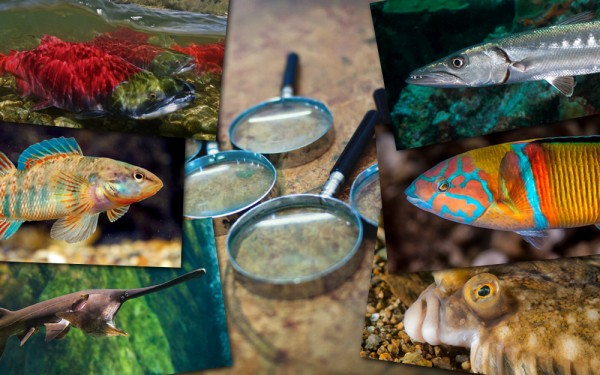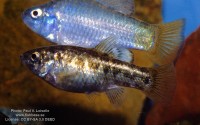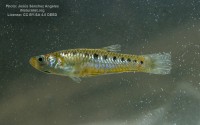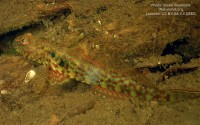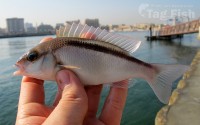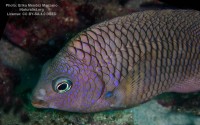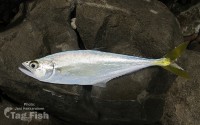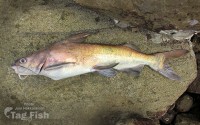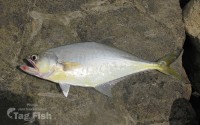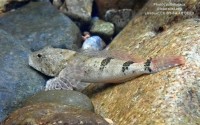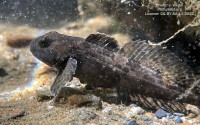Gila chub
(Gila intermedia)

Classification
General data
The Gila chub (Gila intermedia) is a species of ray-finned fish in the family Cyprinidae. It is found in Mexico and the United States.
The Gila chub is closely related to the roundtail chub. This species is commonly found in association with the Gila topminnow, the desert and Sonora sucker, and the longfin and speckled dace.
The Gila chub has a large, chubby body, with large, thick scales. The body is dark overall, and sometimes is lighter on the belly. In larger females, a soft, fat, and broad hump sometimes develops on the nape of the neck. Mature, breeding males have a red or orange color on the lower cheek, back parts of the lips, and on parts of the fin. This coloration can also be found on the male’s caudal peduncle (tail side).
Males usually grow to be only about 15 cm (5.9 in), while females can reach to 25 cm (9.8 in)—a significant difference.
The Gila chub has been found in streams of the Gila River drainage in Arizona, and in the Santa Cruz River system in Sonora, Mexico; however, recently, the Gila chub species has not been documented in the San Pedro drainage in Sonora, Mexico.
The Gila chub has also been recently discovered in these specific drainages in Arizona: Santa Cruz River, Middle Gila River, San Pedro River, Agua Fria River, and the Verde River. These fish have also been extirpated from the Monkey Spring of the Santa Cruz River, and Fish and Cave Creeks of the Salt River.
Gila chub of the Gila River basin usually occupies the smaller headwater streams, springs or marshes. Their choice of diverse habitats varies, depending on the season or age of the fish. Juveniles are found in riffles (a patch of waves), pools, and banks. However, in larger streams, these fish are found in parts of heavy vegetation, for cover and foraging. Gila chubs are also considered to be highly secretive when it comes to habitats; since fish of this species are constantly looking for deeper waters near cover and shade.
